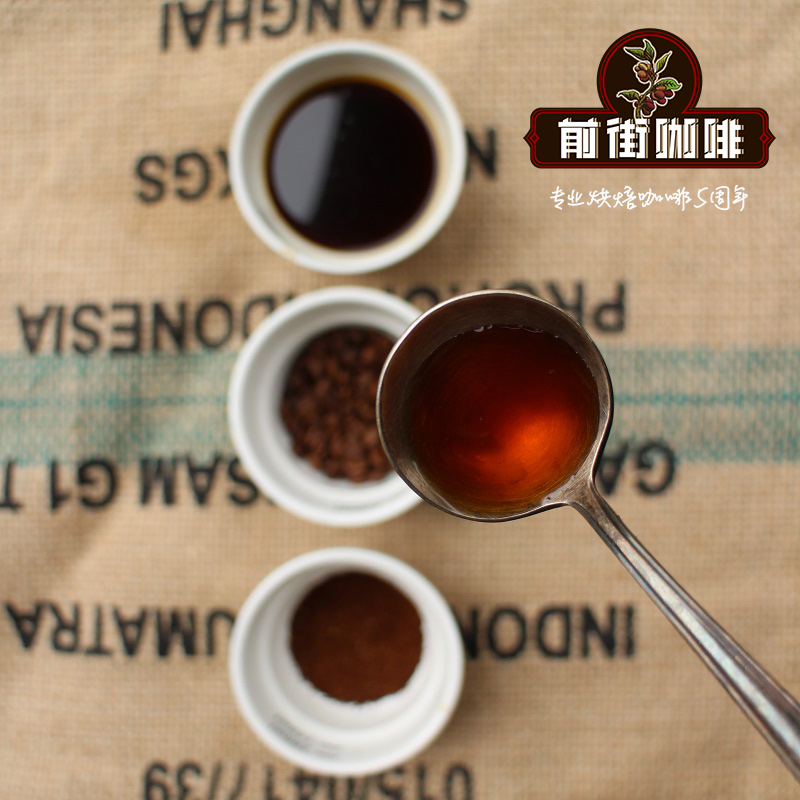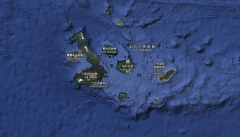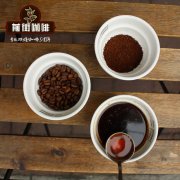Does brewing coffee in the mountains affect the flavor of coffee? Are there any parameters that should be paid attention to in making coffee at high altitude?

People who make coffee know that there are many brewing factors that affect the flavor of coffee:
Grinding thickness, cooking time, disturbance, water quality, water temperature, and altitude at the time of cooking?
That's right, the altitude when cooking.
In fact, most people don't have to worry too much about altitude, but if you are in the producing area on the mountain, you will find that you may have to adjust the cooking parameters, why? Because high altitude will affect the cooking temperature.
The key to the brewing temperature of coffee
Brewing temperature will directly affect the flavor of coffee, a simple look at the reasons.
When brewing, the flavor and aroma of the coffee will be extracted from the coffee powder into coffee liquid, some things will speed up the extraction, some will slow down the extraction speed. For example, fine grinding will accelerate the extraction, hotter water will also accelerate the extraction, the higher the water temperature, the faster the extraction speed. The lower the water temperature is, the slower the extraction speed is.
Joe of Behmor, a coffee maker, said: "of all the factors related to coffee, the most important is the effect of temperature. Although fresh baking and raw bean quality are equally important, the temperature of cooking water plays the most important role.
Is there something wrong with the water temperature? Even if the goal is to extract the flavor and aroma of coffee, you don't want to extract too much. Excessive extraction and insufficient extraction will have a great negative impact on the flavor.
Not all flavors and aromas are extracted at the same time. First of all, you will extract the acidity of the fruit, followed by sweetness, bitterness, and finally astringency. In other words, you don't just want to extract the substance, but extract the "right proportion" of the substance, which means the better if you can control the cause more effectively. Of course, the cause includes the cooking temperature.
Ideal cooking temperature
For example, the boutique coffee association SCA recommends the use of Batch Brewers brewing water temperature.
"from the moment the hot water comes into contact with the coffee powder to the end of the brewing, the machine should keep the hot water temperature at 92 °C and not exceed 96 °C. "
Of course, the brewing parameters of different coffees must be tested by adjusting the water temperature. after all, there are cold extracted coffees that can be brewed with normal temperature water. Generally speaking, the brewing water temperature will not be too far from this range, but when your coffee is bitter, try to lower the water temperature by 1 °C to 2 °C. If the acid of the coffee is more exciting than expected, try to increase the temperature of the brewing water.
However, the above scenarios are based on the premise that the water temperature is in line with expectations. When you cook at a higher altitude, the results will change.
Effect of altitude on boiling point
The boiling point of water in the flat is 100 °C. however, the higher the altitude, the lower the air pressure, and the air pressure is the key to affect the boiling point. When the pressure of the liquid is equal to the atmospheric pressure, the liquid will evaporate. As the air pressure decreases, so does the boiling point. In other words, the higher the altitude, the lower the boiling point.
And this will have an impact on your cooking formula, "altitude has a great impact on the cooking formula, once the boiling point changes, the boiling temperature range will also change." "
How does the boiling point affect cooking?
The author has done some research on how the cooking altitude affects the formula, not only the water temperature error of the cooking machine can be accurate to 0.55 °C, but also has the function of setting altitude to change the cooking water temperature.
When located at an altitude of about 1500 meters, the boiling point will be reduced by about 5.5C, which will make it more difficult for you to achieve the ideal extraction results. If you brew the coffee with the same parameters set on the flat ground, the coffee may be light or thin. At this time, it is recommended to take altitude into account and adjust the parameters with hand brewing.
Juan Mario Carvajal, the technical judge of the World Coffee Masters Competition WBC and founder of the South American Fine Coffee Association, cautioned that as long as brewing coffee has the impact of high altitude, more factors must be considered.
When altitude makes making coffee more complicated
As mentioned earlier, altitude affects the ideal cooking water temperature, and altitude also affects many other factors.
For example, sometimes the softness and hardness of the water quality will help good coffee at high altitude, but sometimes it will become resistance, and the softer water will speed up the extraction, which means that the temperature of your brewing water can be lowered.
Bogota, the capital of Colombia, is 2640 meters above sea level, and the local water quality is very soft, which makes up for the lack of water temperature. Therefore, your extraction is carried out at a lower temperature, which slows down the extraction because of the decrease in boiling point.
On the other hand, if you are making coffee in a city with high altitude and hard water quality, there will be a problem.
This issue is more complicated than it seems, because not all hard water has the same composition, and the hardness can only tell us about the amount of certain substances in the water, but not the content and percentage of ionic compounds in the water. this is the impact of water quality, and it is difficult to grasp its actual composition.
Can you make up for the impact of altitude?
If you have a cooking machine that can set up the function of adjusting altitude, it doesn't cause much trouble. But what do you do if you use a regular coffee machine or hand flushing?
For the coffee machine, the importance of adjusting the parameters with altitude is not only to have better coffee, but also to prolong the life of the machine. For example, at an altitude of 1500 meters, when the water is heated to 92 °C, it is very close to the boiling point, and long-term use will have a negative impact on the coffee machine or heating utensils.
The opponent will be simpler than the coffee machine. The author mentioned that located in an area 1665 meters high, he would prefer to use the Philharmonic pressure to make coffee, because you use the pressure of the Philharmonic pressure to make up for the impact of the low pressure. The use of filter cup cooking is suggested to adjust the ratio of grinding thickness to powder water. When the altitude is higher, the powder-water ratio can be lowered or the grinding degree can be adjusted to increase the extraction speed under the condition of lower water temperature.
Even more extreme, such as in areas above 3000 meters above sea level, where the boiling point of water is lower, you can use fine grinding of coffee powder to increase pressure.
To sum up, just in this article, it is easy to mention the effects of altitude, water quality, grinding degree and pressure on coffee. In fact, there are many factors, including the quality of coffee beans and machines. But in the end, it is necessary to make a good cup of coffee and let the machine be used under normal conditions to prolong the life of the machine.
Water temperature is very important, and altitude is only one of the factors that affect water temperature.
Important Notice :
前街咖啡 FrontStreet Coffee has moved to new addredd:
FrontStreet Coffee Address: 315,Donghua East Road,GuangZhou
Tel:020 38364473
- Prev

The influence of Geography and Climate on the Coffee producing areas of the Galapagos Islands
Located on the Pacific coast of Ecuador, the Galapagos Islands (Galapagos) consists of 13 major islands, 6 smaller islands and numerous small islands. About 135 years ago, the first coffee seeds were brought here from French colonies in the Caribbean (stopped in Panama along the way). These are the seeds of bourbon, which is still grown on these islands today.
- Next

What is cowboy coffee? How can cowboy coffee taste good? Cowboy Coffee recipe sharing
Cowboy coffee is to cook coffee powder and water directly in a pot. In the early days, this was a relatively shoddy method of coffee brewing, probably because soldiers directly heated empty cans on a campfire, and the coffee charred was so bitter that it had to be sweetened or spiced to cover up its thick negative taste. However, if you can master the characteristics of this method of cooking, you can actually make good coffee.
Related
- Beginners will see the "Coffee pull flower" guide!
- What is the difference between ice blog purified milk and ordinary milk coffee?
- Why is the Philippines the largest producer of crops in Liberia?
- For coffee extraction, should the fine powder be retained?
- How does extracted espresso fill pressed powder? How much strength does it take to press the powder?
- How to make jasmine cold extract coffee? Is the jasmine + latte good?
- Will this little toy really make the coffee taste better? How does Lily Drip affect coffee extraction?
- Will the action of slapping the filter cup also affect coffee extraction?
- What's the difference between powder-to-water ratio and powder-to-liquid ratio?
- What is the Ethiopian local species? What does it have to do with Heirloom native species?

